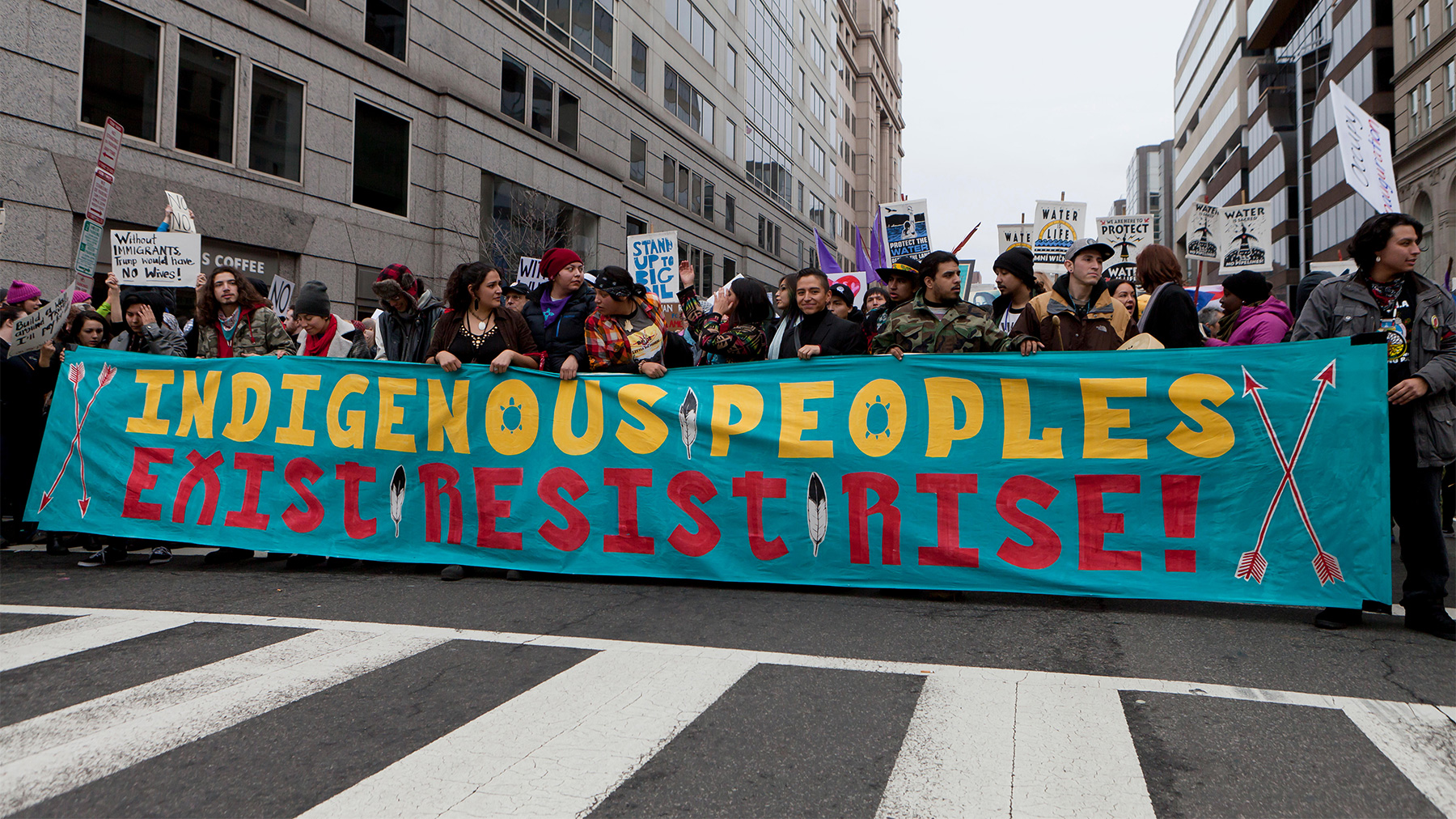On Monday, Oct. 12, many people will observe a holiday that celebrates what schoolchildren for generations in our country have been taught was Christopher Columbus’ “discovery” of the Americas in 1492. But we know today that this supposed “New World” was already home to millions of diverse, Indigenous people with their own cultures, languages and sovereignty who had occupied the land for thousands of years.
Historians agree that for these Indigenous peoples, the arrival of Columbus and the Europeans who followed him was a calamity of catastrophic proportions. Over time, the population was decimated through war, disease, enslavement, forced displacement and genocide.
Today, there’s a growing movement across the country to replace Columbus Day with Indigenous Peoples’ Day. Fourteen states, more than 130 cities and numerous school districts now celebrate Indigenous Peoples’ Day instead of or in addition to Columbus Day, according to Smithsonian Magazine, which offers suggestions for how to observe the day amid the pandemic.
But this is about more than the symbolism of a holiday. It’s about truth-telling and correcting historical misinformation so that we can better reckon with our history – so that we can understand how this history shaped our present and use our shared knowledge, no matter how uncomfortable, to forge a truly just and equitable future for all.
That’s why the Southern Poverty Law Center’s Teaching Tolerance project has produced a new short film for the classroom – The Forgotten Slavery of Our Ancestors. Made to share with students in grades 6 and up, the film introduces the history of Indigenous enslavement on land that is now the United States and those working to recover that history.
Recognizing the ways that American enslavement, dispossession and white supremacy continue to pervade our society is a critical first step in dismantling oppressive systems still in place. And students deserve an accurate accounting of that legacy. As Hasan Kwame Jeffries, chair of our Teaching Hard History Advisory Board, wrote in his preface to that project, “Some say that slavery was our country’s original sin, but it is much more than that. Slavery is our country’s origin.”
But schools have not traditionally taught about the enslavement of Indigenous peoples. The SPLC film introduces leading scholars and historians who speak to the scope of this forgotten slavery.
Historian Ned Blackhawk, for example, explains that Indigenous enslavement is “an American subject that both predated African American slavery and existed far beyond the contours of African servitude, particularly in the American South.” And Andrés Reséndez, author of The Other Slavery: The Uncovered Story of Indian Enslavement in America, notes that the enslavement of Indigenous people in the American West continued “throughout the 19th century.” In all, he estimates, somewhere between 2.5 and 5 million Indigenous people were enslaved in the Americas between the arrival of Columbus and the year 1900.
The injustices continued long after slavery was abolished.
Indigenous people were not granted U.S. citizenship until 1924 and were not given the right to vote until 1948. They were not granted religious freedom or the right to determine the welfare of children in their communities until 1978.
The effects are clear today.
A quarter of American Indians and Alaska Natives live in poverty and experience extreme inequities in employment and housing. Many Indigenous nations are still working to reclaim their languages, traditional ceremonies and spiritual practices. They face significant barriers to exercising their right to vote, especially after the U.S. Supreme Court gutted Section 5 of the Voting Rights Act. And Euro-American culture continues to homogenize, appropriate and commodify the very same cultural practices that Indigenous peoples themselves were discouraged from openly expressing because of state-sponsored violence.
It’s long past time to acknowledge the past and work to ensure equity in the present.
“I just think that ultimately it’s about truth and truth-telling,” says Alice Qannik Glenn, assistant producer of The Forgotten Slavery of Our Ancestors. “And in order to move forward … we should acknowledge the truth.”
As an Iñupiaq, Glenn says, learning this history can be “healing” – and “an acknowledgment of the truth that happened to us as Native peoples in the past” and an answer to today’s stereotypical, or absent, representations of Indigenous people and cultures.
Observing Indigenous Peoples’ Day instead of Columbus Day is an important step.
Photo by B. Christopher/Alamy Stock Photo



